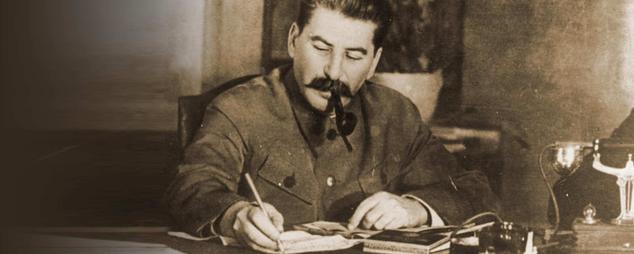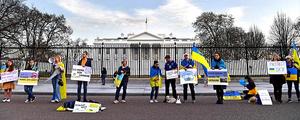In the fall of 1947 -- the early days of the Cold War after World War II -- Gallup reported, "The average American voter has at least five major grievances to voice against Russia." Chief among these, three-quarters of Americans thought Russia's geopolitical goal was not merely self-defense, but world domination.
| U.S. adults | |||||||||||||||||||||||||||||||||||||||||||||||||||||||||||||||||||||||||||||||||||||||||||||||||||
|---|---|---|---|---|---|---|---|---|---|---|---|---|---|---|---|---|---|---|---|---|---|---|---|---|---|---|---|---|---|---|---|---|---|---|---|---|---|---|---|---|---|---|---|---|---|---|---|---|---|---|---|---|---|---|---|---|---|---|---|---|---|---|---|---|---|---|---|---|---|---|---|---|---|---|---|---|---|---|---|---|---|---|---|---|---|---|---|---|---|---|---|---|---|---|---|---|---|---|---|
| % | |||||||||||||||||||||||||||||||||||||||||||||||||||||||||||||||||||||||||||||||||||||||||||||||||||
| To be the ruling power | 76 | ||||||||||||||||||||||||||||||||||||||||||||||||||||||||||||||||||||||||||||||||||||||||||||||||||
| Just building up protection | 18 | ||||||||||||||||||||||||||||||||||||||||||||||||||||||||||||||||||||||||||||||||||||||||||||||||||
| No opinion | 6 | ||||||||||||||||||||||||||||||||||||||||||||||||||||||||||||||||||||||||||||||||||||||||||||||||||
| Gallup, ~1947 (survey dates not available) | |||||||||||||||||||||||||||||||||||||||||||||||||||||||||||||||||||||||||||||||||||||||||||||||||||
Gallup reported this finding on Oct. 31, 1947, as part of a three-part series titled, "What We Think of Russia." The article reflected Americans' alarm over the Soviet Union's rapidly growing influence in Eastern Europe in the immediate postwar years.
In the article, George Gallup noted that Henry A. Wallace -- President Harry Truman's former commerce secretary -- had recently suggested that one way for Truman to clear the air with Soviet Premier Joseph Stalin would be for the two leaders to meet and present each other with a list of grievances. This article was Gallup's way of showcasing the American people's grievances with Russia.
In addition to reporting that most Americans thought Russia was seeking global hegemony, Gallup found 72% believing that "Communists would destroy the Christian religion if they could." Just 15% disagreed, while 13% were unsure.
Americans' third grievance was in answer to an open-ended question about why Russia allowed so few outsiders to visit the country. Their top response was that Russia was hiding military secrets, including preparations for war.
Fourthly, Americans' top answer to an open-ended question asking how Russia "gained control" of several Eastern European countries was that it used force, conquest or intimidation. Others thought Russia had used "infiltration" to gain influence and control in places like Poland, Yugoslavia, Czechoslovakia, Hungary, Albania and Finland.

Subscribe to our online platform to access nearly a century of data.
Gallup Analytics lets you search, compare and export data to enhance your research.
The final grievance, according to the article, was that 72% of Americans believed the split between Russia and the United States would have a negative effect on the United Nations.
Perhaps anticipating criticism from Wallace or others who maintained that Russia was merely acting in its own best interests after the war, George Gallup wrote: "Friends of Russia may argue that some or all of those grievances on the part of the American people are unjust or that they show lack of knowledge of the true situation. The purpose of the Institute survey was not to determine what attitude toward the Soviets is right or wrong, but what the majority of Americans are actually thinking."
Read more from the Gallup Vault.




